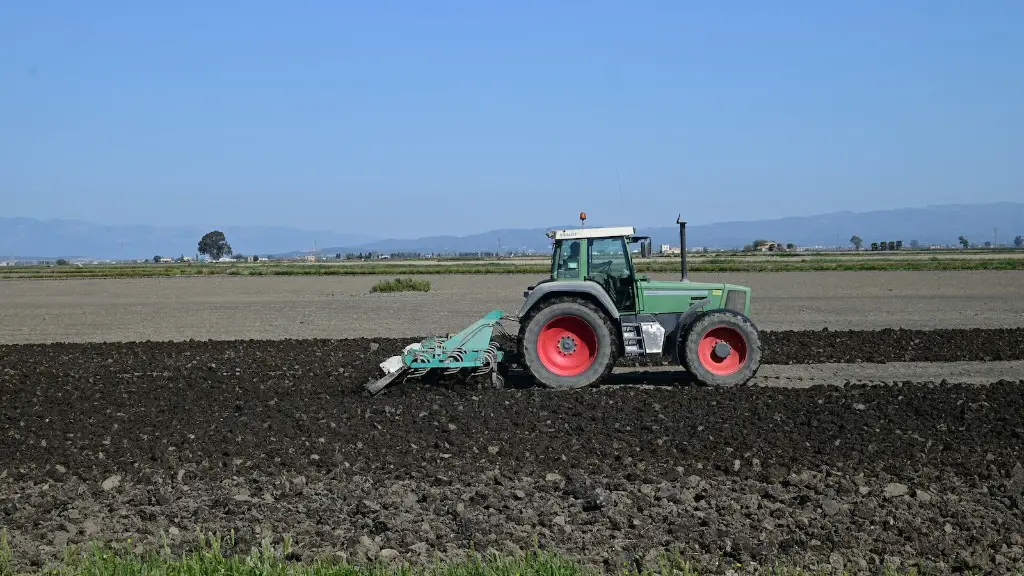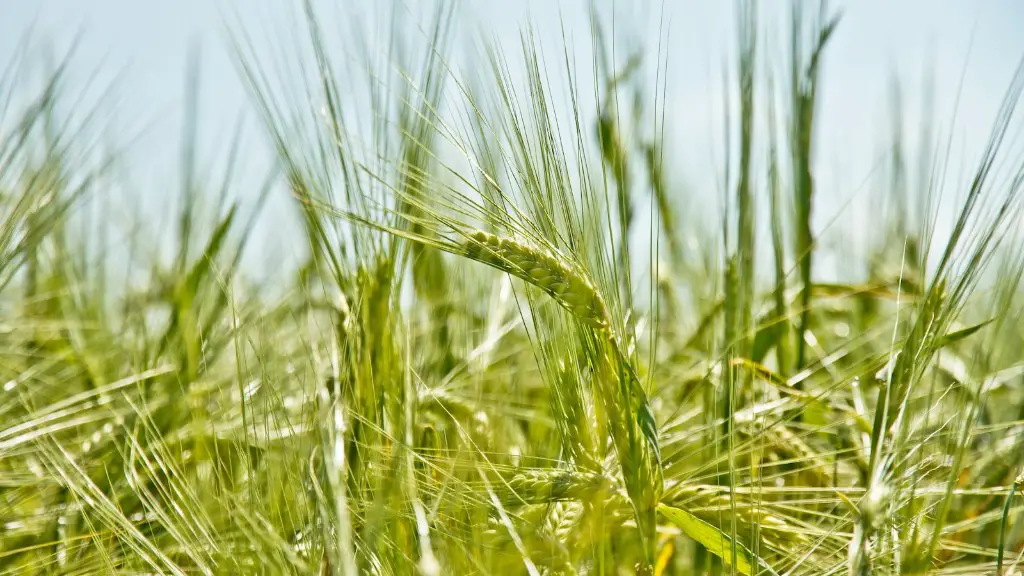Agriculture generally refers to the practice of cultivating, managing and exploiting land by humans for the production of agricultural products. Agriculture study is a broad and encompassing field of scientific inquiry, relying heavily on the contribution of several disciplines such as soil science, meteorology, crop science and biology. The goal of this field of study is to understand the roles of different factors that control the environment and ecosystems in agricultural production. Through the use of interdisciplinary research, agricultural experts seek to develop methods and technology that can increase yields, farm sustainability and rural development.
One of the main goals of agriculture is to sustainably provide enough food to meet an increasing global population. To achieve this, experts must identify different methods that can increase crop yields, as well as soil conservation methods that can reduce waste. Besides increasing crop yields, agricultural experts need to understand the relationship between plants and their environment, as well as their potential applications in agriculture. For instance, experts can use hydrological, biochemical and genetic studies to determine the best possible irrigation and pest management techniques.
Agriculture research has developed a number of advances in the use of technology, particularly in relation to precision agriculture. This includes the use of sensors and remote sensing technology to measure soil fertility, and the use of Geographic Information Systems (GIS) to analyze data and create decision-making models. Precision agriculture technology can be used to provide information on soil nutrient content and water availability to farmers, allowing for more informed decisions about inputs and ensuring optimal yields.
Examining the socio-economic impact of agriculture is also an important element of agricultural study. Through surveys and qualitative studies, experts can gain better understanding of the economic and social roles of agricultural production in a certain area. By examining the relationship between agricultural production, economic opportunities, nutrition and poverty, experts can develop better methods for improving rural life and reducing disparities.
Another major area of focus for agriculture study is food safety. Experts need to identify efficient methods to ensure the safety of food products produced, as well as the environmental consequences of their production. Food policy has become an even more pertinent issue, with the recent outbreak of food-borne diseases such as E. coli and Salmonella. Additionally, experts need to consider the wider potential of food safety, such as food waste, food insecurity, and awareness of nutrition.
Nutrition as it relates to Agriculture
Improving nutrition is a pervasive challenge that experts in agriculture examine. This includes understanding the link between agricultural production and nutrition, using crop varieties with improved nutrient content, and understanding the effect of food production on human health. Poor nutrition can lead to different health issues such as anemia, stunted growth, and reduced immunity. Moreover, experts need to study the effects of dietary patterns and food production on global health, and its role in global poverty reduction.
Studies in nutrition and agriculture can also look at how different agricultural practices can affect the nutritional value of crops. For instance, planting different varieties of crops can help increase the range of nutrients available, while implementing green manure and crop rotation can improve soil fertility and nutrient uptake. Overall, these strategies can help individuals access more nutritious food, providing better health outcomes.
Food Security Provided by Agriculture
The concept of food security is closely related to agriculture. It focuses on the household, national and global levels, examining the availability, access, utilization and stability of food supplies. By studying food security, experts in agriculture can inform food policy as well as international efforts to improve nutrition. Studying food policies that address hunger and malnutrition is also essential in this field.
Agriculture experts also consider the environmental impact of food production, its contribution to global warming, and the ways it can lead to water resource depletion. By analyzing the climate change implications of different agricultural practices, scientists can promote the adoption of sustainable practices in food production that reduce water use and food waste.
In addition, experts in agriculture research can use biotechnology to develop crop varieties that are more tolerant to drought and other environmental stressors. This helps farmers adapt to changing environments, reducing the risk of yield losses and increasing economic opportunities, particularly in regions that are vulnerable to climate change.
Animal Husbandry as it relates to Agriculture
Animal husbandry is an essential element of agricultural production and research. By studying animal husbandry, experts can gain a better understanding of animal nutrition, reproductive physiology, genetics and the management of animal populations. This is important in helping to ensure that livestock are healthy and are able to produce quality products, while also minimizing the environmental implications of such production processes.
Adequate nutrition, proper housing and epidemic control are just some of the factors that experts in animal husbandry must consider. Alongside these essential elements, experts also need to focus on animal welfare and consider the ethical implications of animal husbandry systems. By considering the nutrition, health and welfare of livestock, agriculture experts can help farmers identify ethical and sustainable practices for managing their animal populations.
Tackling the challenges associated with sustainable animal production is an integral part of animal husbandry research. Through the application of climate-smart agricultural practices, experts can help farmers reduce their environmental footprints while also improving their yields and incomes.
Organic Farming Practices as they relate to Agriculture
Organic farming is a growing field of agricultural research, focusing on the production and handling of food products without the use of synthetic fertilizers, pesticides and animal feed additives. Organic farming seeks to increase crop yields and conserve natural resources, while providing safe and nutritious food to consumers.
Organic farming also focuses on involving local communities in areas where organic farming is practiced, as well as small-scale farmers. By providing local communities with alternative income opportunities, organic farming can increase access to local produce and help alleviate poverty. Additionally, research in organic farming can increase understanding of environmentally friendly production systems, allowing for increased efficiency and less waste.
Agriculture research has developed a number of advances in organic farming techniques such as the use of organic manures, organic pest management techniques and natural beneficial microbes. The use of these techniques can help reduce the use of toxic pesticides and help maintain healthy soil ecosystems. Additionally, organic farming systems can also help conserve natural resources, such as water and land, while reducing the environmental impact of food production.
Genetics as it relates to Agriculture
Genetics is another important field of agricultural research, especially considering recent developments in biotechnology. By understanding different plant and animal genetics, experts can identify strategies to improve breed quality and develop pest-resistant crops. Through plant breeding, experts can select crop varieties with improved yields and improved nutrient content.
Genetic research can also help increase the production of certain crops, allowing for increased food security for communities around the world. Moreover, advances in gene-editing technology such as CRISPR can help experts identify traits for increased drought tolerance and nutrient content, among others.
In animal husbandry too, genetic research is proving beneficial. By studying animal genetics, experts can identify traits for increased yield, improved feed efficiency and better disease resistance in livestock. Animal genetics can be applied to the development of improved breeds in both livestock and aquaculture.
Ultimately, genetic technology can help increase food production, reduce waste, and improve the quality of food products. By understanding trends in genetic research, experts in agriculture can develop new technologies to address future challenges.





